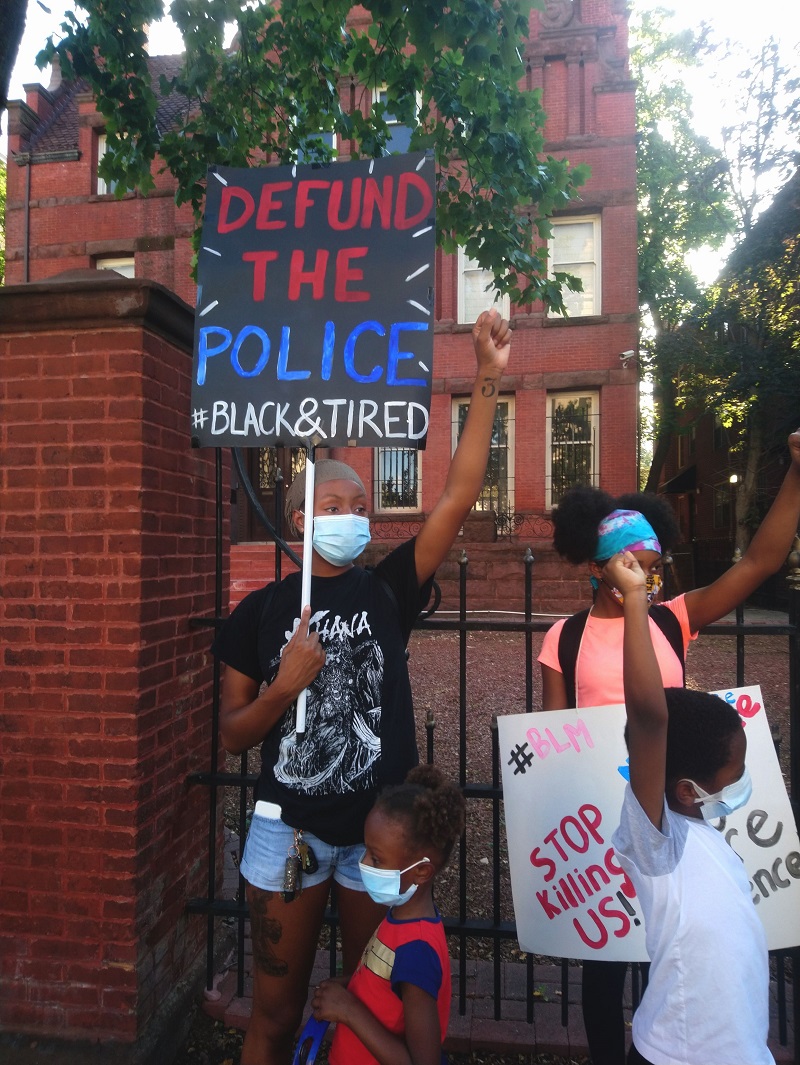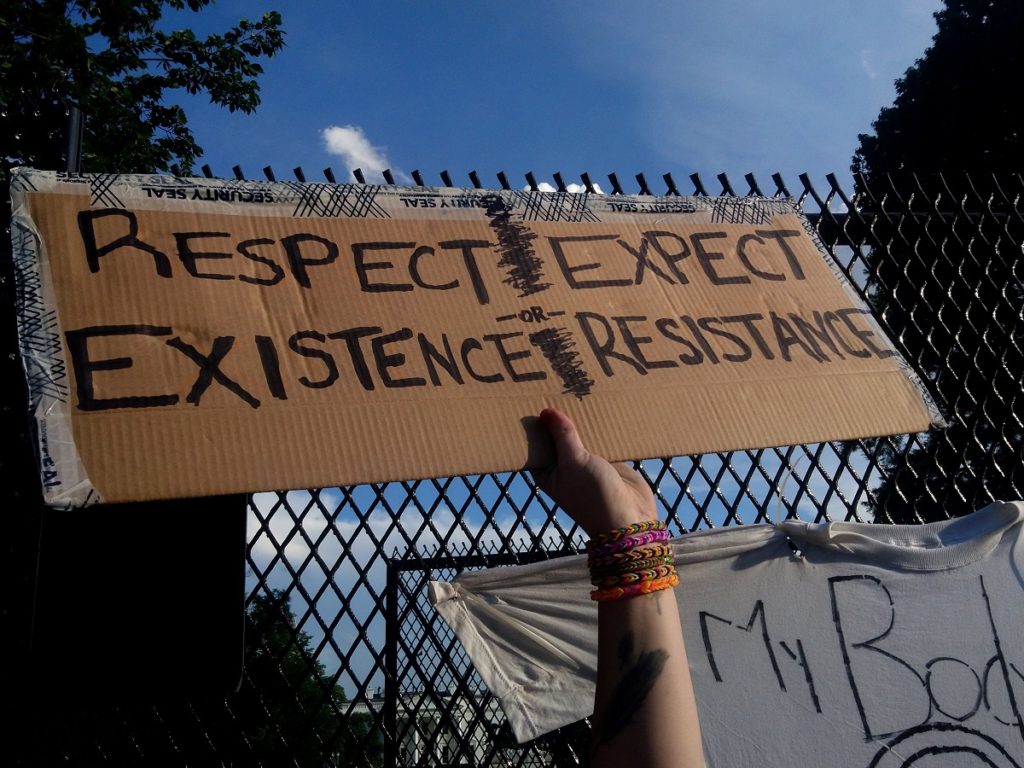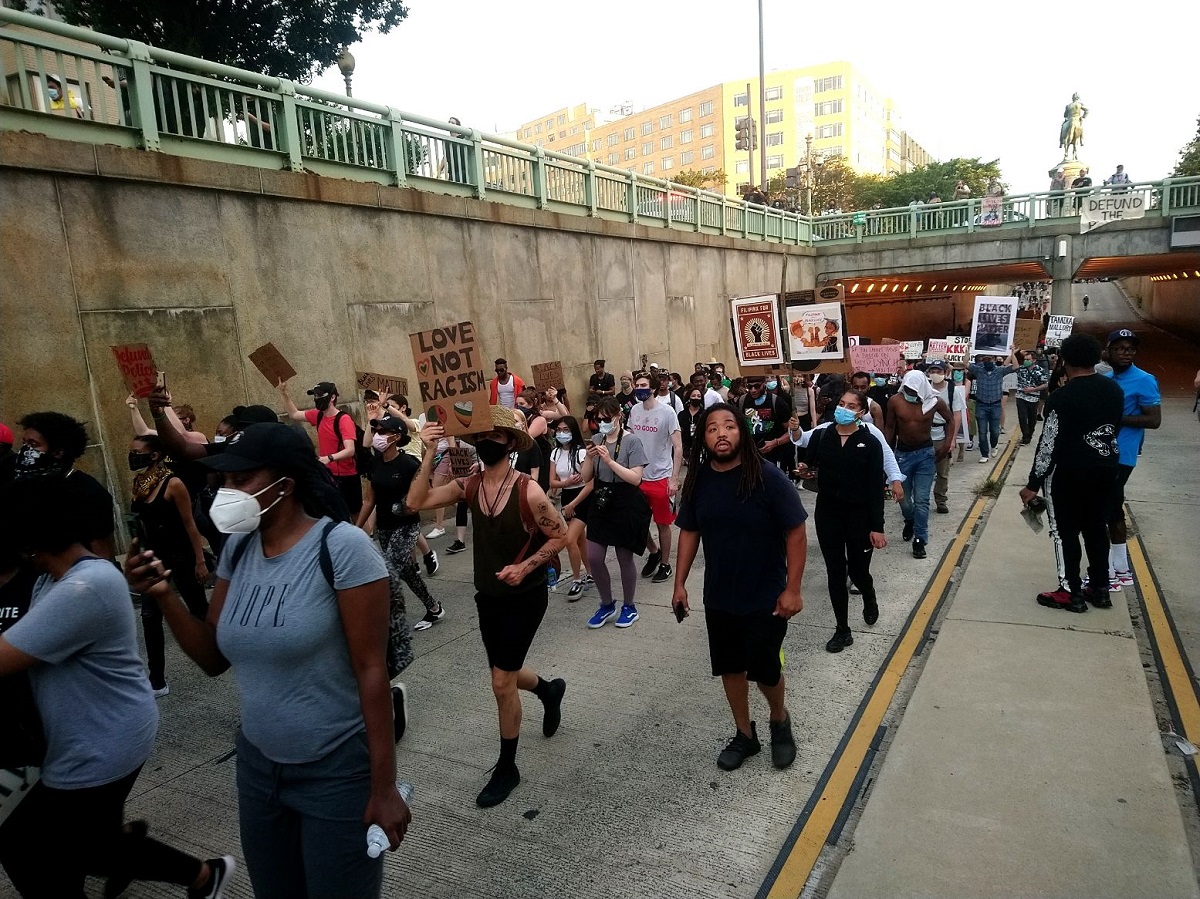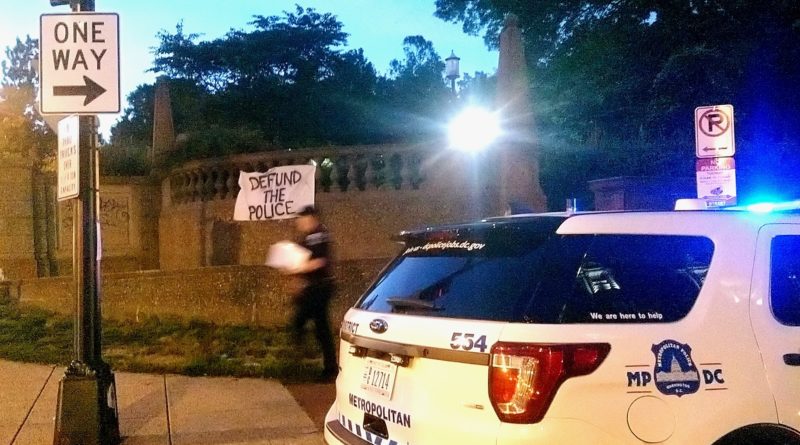“Black Lives Matter” is International: Where there is oppression, there will be resistance
By Roger D. Harris
From Corte Madera, California
The police murder of George Floyd in Minneapolis on May 25th was the spark that ignited the tinder of accrued injustice throughout the US and globally. This injustice has deep antecedents in the US and indeed in much of what is now called the Global South. There is a shared history of colonial conquest of the Indigenous and the abominable institution of the enslavement of African peoples.
What happened has its roots in systemic oppression that has resonated internationally. Just as the police suffocated George Floyd, US unilateral coercive measures against Venezuela, Cuba, Nicaragua, Iran, Zimbabwe, and nearly one third of humanity are designed to asphyxiate those nations which aspire to pursue an independent course.
International Movement Erupts

Defying coronavirus restrictions on public assembly, people are amassing in solidarity.
-
- In the US colony of Puerto Rico, hundreds danced bomba and chanted the names of their martyrs along with George Floyd, Breonna Taylor, Ahmaud Arbery, and so many others. A guillotine was hauled up to the governor’s mansion.
- In Mexico, where Bill Clinton’s NAFTA decimated peasant agriculture, among the signs affixed to the security fencing in front of the US embassy was one reading, “racism kills, here, there, and all over the world.”
- Thousands took the streets in major cities in Brazil under the banner Vidas Negras Importam! The anti-racist struggle was connected to criticisms of the rightwing Bolsonaro government’s handling of the pandemic.
- In Chile, where the indigenous Mapuche leader Alejandro Treuquil was just assassinated, the cry “Mapuche lives matter” can be heard.
- In Greece, where the EU had wrecked the economy, youth associated with the Communist Party (KKE) lined up in front of the US embassy in Athens and the US consulate in Thessaloniki bearing torches and holding signs reading “capitalism means I can’t breathe.”
- In England, authorities had long resisted removal of the statue of 17th-century slave trader Edward Colston, but 10,000 protesters marching in solidarity with the Black Lives Matter movement tore the racist symbol down and dumped it into the River Avon. Statues of colonialists Winston Churchill and Cecil Rhodes have been targeted by the movement and may come tumbling down too.In Belgium, statues of King Leopold II are meeting a similar fate as tens of thousands take to the streets in protest. The late 19th and early 20th-century monarch became fabulously wealthy over the dead bodies of millions of Africans, who were subjected to terrible atrocities.
- Warriors for Aboriginal Resistance and others drew the connection between the police murder of African Americans in the US to the deaths of over 400 Indigenous who are believed to have died in police custody in Australia as protests arose throughout the country.
- Similar actions took place in New Zealand, where the indigenous Maori are oppressed.
- In Cape Town, protesters marched on the parliament to pay homage to George Floyd and a local man, Collins Khosa, who was beaten to death by South African police, describing their struggle as part of an anti-neocolonial, anti-imperialist movement.
- In occupied Jerusalem, an autistic Palestinian man, Eyad Halak, was killed by Israeli police, precipitating demonstrations proclaiming: “Eyad and George [Floyd] were victims of similar systems of supremacy and oppression. They must be dismantled.”
This “historic alliance” of the Movement for Black Lives with the oppressed abroad goes back to their 2016 founding document, which then characterized Israel as an “apartheid” state, condemned US backing for the settler “genocide” against Palestinians, and supported the Boycott, Divestment, and Sanctions Movement against Israel.
Linking Home and Abroad
The militarization of the US domestic police is bringing home the practices that the government perfected in suppressing popular expressions for self-determination abroad. The US’s closest international partner, Israel, is a master of abusive police practices against its own Palestinian population. Development of those practices, partly funded by the US, are then imported back to the US. Over 100 Minneapolis police received training from Israeli law enforcement officers along with other police departments across the country.
Newsweek describes “how America’s police became an army.” Under the 1033 Program, military equipment is transferred to the domestic police, who are then mandated to use the equipment as a condition of the program.
While the police have been shooting rubber bullets and teargas at demonstrators in the homeland, the US military deployed a so-called Security Force Assistance Brigade to Colombia. As the “world’s policeman,” the US has some 800 formal military bases internationally; no other country has more than a handful of foreign bases.
Budgets for both domestic police and the US military are obscenely inflated and continue to grow, receiving bipartisan support. The Black Lives Matter movement questions whether either of these armed forces – police and military – truly serve or protect us. When Hurricane Katrina flooded poor African American neighborhoods in New Orleans, people were left to die stranded on rooftops while the police and the National Guard guarded private property.
Amid the current pandemic, ordinary people are experiencing punishing austerity with the worst yet to come. While the US Fed is doling out hundreds of billions of dollars daily at a 1/10 of one percent interest rate – practically free money – to the banks, the average US citizen is saddled with average credit card penalty interest rates of just under 30%. Who is doing the real looting?
Likewise, payments of unjust debt – mostly accrued by US-backed military dictatorships – to vulture capitalists from the US and other wealthy countries are stealing the livelihoods of the peoples of Argentina and other nations saddled with socially unsustainable debt burdens.
More people are behind bars in the US than anywhere else in the world, largely due to the so-called war on drugs, which in fact is a war on the most vulnerable and a pretext for the deployment of coercive means of social control. Black and brown people are targeted for arrest, adjudication, and imprisoned disproportionately compared to their numbers in the general population. The NAACP reports African Americans are imprisoned at five times the rate of whites. While poor communities in the US, particularly those of color, are suffering from the plague of drugs, the primary world source of cocaine is the US client state of Colombia and the primary world source of heroin is US-occupied Afghanistan.

Delegitimization of “American Exceptionalism”
President Obama unequivocally exclaimed: “I believe in American exceptionalism with every fiber of my being.” In another speech, he proclaimed: “[W]hat makes us the envy of the world…[is] the fact that we’ve given everybody a chance to pursue their own true measure of happiness. That’s who we are.”
That’s not who “we” are, and the chant “no justice, no peace” is exposing that to the world. American exceptionalism is the ideological construct used to extol “American world leadership” based on the vision that the US is uniquely just and therefore has an obligation to endow the rest of the world with its freedom. As George Floyd’s niece Brooke Williams asked, “when has America ever been great?”
The US “leads” the world in incarceration of its own people, in consumption of addicting illicit drugs, in military and police spending, and in foreign military bases. No one elected the US to impose its “full spectrum dominance” on the globe. With the internationalization of the Black Lives Matter movement, this justifying ideology is being challenged, delegitimizing the US imperial project.
Indicative of the US’s eroding legitimacy was its failure to suppress an inquiry by the UN Human Rights Council of “racially inspired human rights violations.” The representative from Burkina Faso, representing the 54 African countries, pressed for the investigation of the “injustice and police brutality that persons of African descent face on a daily basis.” This followed the UN Committee on the Elimination of Racial Discrimination’s call for the US to make “immediate structural reforms to end racial discrimination.”
The internationalization of the protests reflects an understanding that it is the same US imperialist knee on the neck at home and abroad. Martin Luther King’s indictment that “the United States is the greatest purveyor of violence in the world today,” rang true in 1967 and ever more so now. Appropriately, the movement around Black Lives Matter, which has engaged the popular classes in what Che called the “belly of the beast,” has taken international prominence signifying that where there is oppression, there will be resistance.
As activist and lawyer Mark P. Fancher observes, “resistance is global.” International solidarity among the oppressed has a long tradition and is gathering momentum based on the understanding there is one struggle for justice with many fronts. “No justice, no peace” is being heard around the world.
Roger D. Harris is Associate Editor at COHA and also part of the Task Force on the Americas, a human rights group working in solidarity with the social justice movements in Latin America and the Caribbean since 1985.
[Main photo-credit: Patricio Zamorano/COHA.org]



